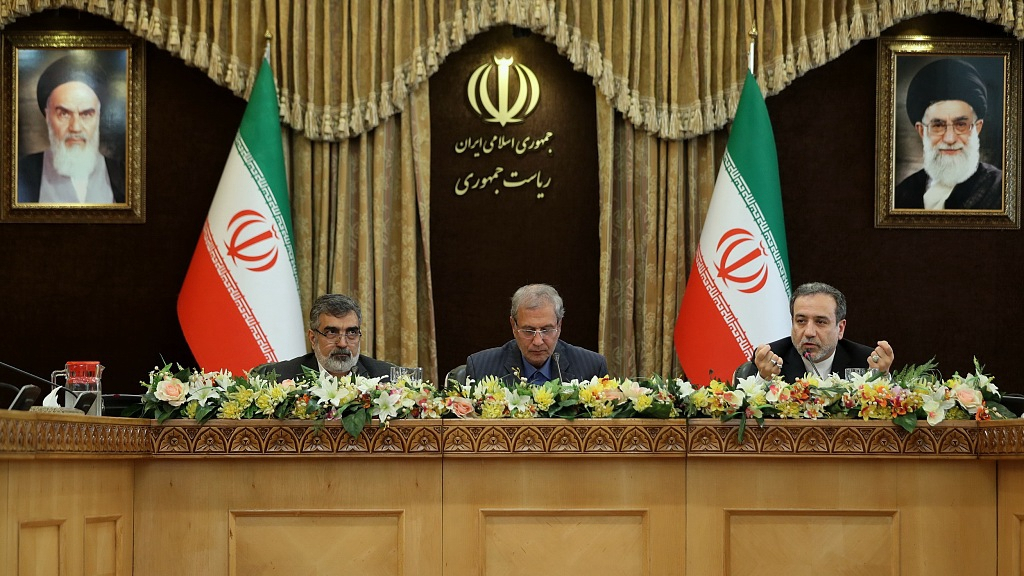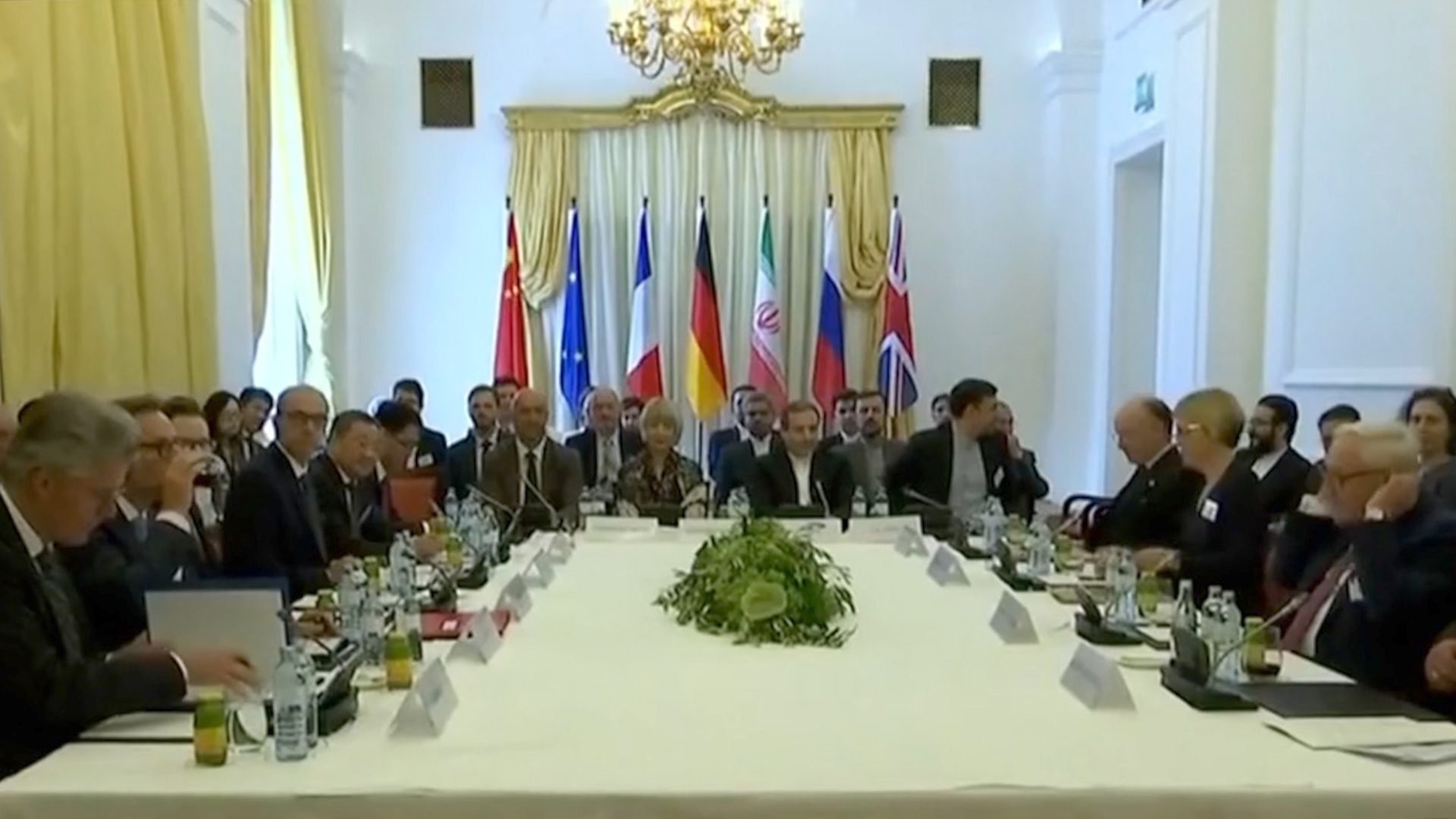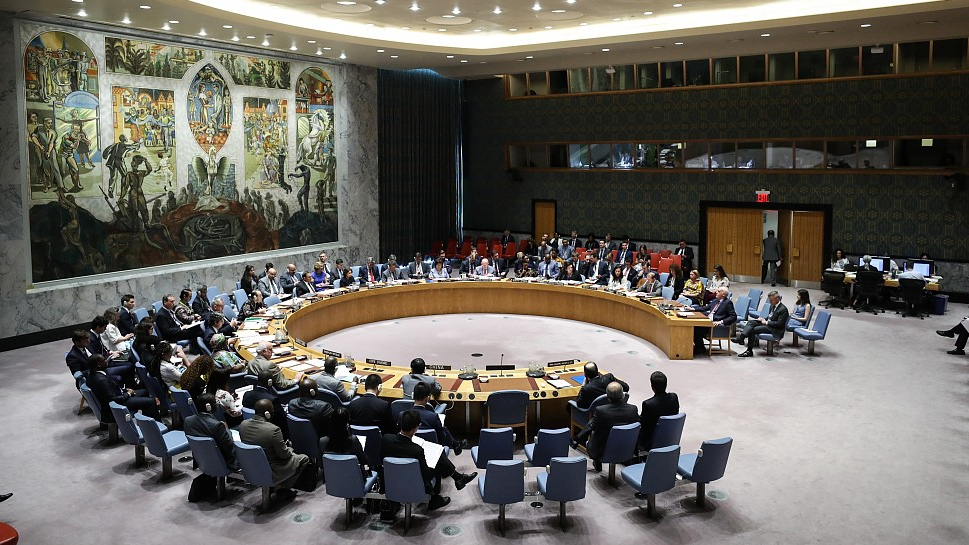
The head of Iran's Atomic Energy Organization, Ali Akbar Salehi, told lawmakers on Sunday that Iran will restart activities at the Arak heavy water nuclear reactor, the ISNA news agency reported.
ISNA cited a member of parliament who attended the meeting. Heavy water can be employed in reactors to produce plutonium, a fuel used in nuclear warheads.
Read more:
U.S. and Iran are pushing full steam ahead – what's next?
Iran stopped complying in May with some commitments in the 2015 nuclear deal that was agreed with global powers, after the United States unilaterally withdrew from the accord in 2018 and re-introduced sanctions on Tehran.

Iran's Atomic Energy Organisation spokesman Behrouz Kamalvandi (L), government spokesman Ali Rabiei (C), and Deputy Foreign Minister Abbas Araghchi give a joint press conference at the presidential headquarters,Tehran, Iran July 7, 2019. /VCG Photo
The remaining signatories have tried to hold the nuclear deal together, an increasingly difficult task as tensions between Washington and Tehran have soared in recent weeks.
On July 3, President Hassan Rouhani said Tehran would increase its uranium enrichment levels and start to revive its Arak heavy-water reactor after July 7 if the nations in the nuclear pact did not protect trade with Iran promised under the deal but blocked by the U.S. sanctions.
Iran nuclear talks in Vienna

Parties to Iran's 2015 nuclear deal met in Vienna on Sunday for emergency talks called in response to an escalation in tensions between Iran and the West that included confrontations at sea and Tehran's breaches of the accord.
China, Britain, France, Germany, Russia and Iran have been trying to salvage the pact since the United States withdrew from it in May 2018 and re-imposed and toughened sanctions on Iran, crippling an already weak economy.
The reduction of commitments can be reversed, Iranian officials have said, if the remaining signatories to the deal uphold their promises.

The UN Security Council holds a meeting on implementing the resolution that endorsed the Iran nuclear deal at UN Headquarters in New York, U.S., June 26, 2019. /VCG Photo
So far, Iran has breached the limit of its enriched uranium stockpile as well as enriching uranium beyond a 3.67 percent purity limit set by its deal with major powers, defying a warning by Europeans to stick to the deal despite U.S. sanctions.
The UN nuclear watchdog, policing the deal, said "(Trade vehicle) INSTEX , along with other measures, will be discussed in the meeting. Other parties should accelerate their efforts, otherwise Iran will take a third step," the diplomat said.
Western powers have said Iran's nuclear ambitions must be curbed due to their concerns that Tehran intends to build nuclear weapons. Tehran denies this.
The meeting on Sunday of the Joint Commission of the Joint Comprehensive Plan of Action (JCPOA), the deal's formal name, was chaired by the EU foreign policy service's Secretary General Helga Schmid.
(With inputs from Reuters)

Copyright © 2018 CGTN. Beijing ICP prepared NO.16065310-3
Copyright © 2018 CGTN. Beijing ICP prepared NO.16065310-3